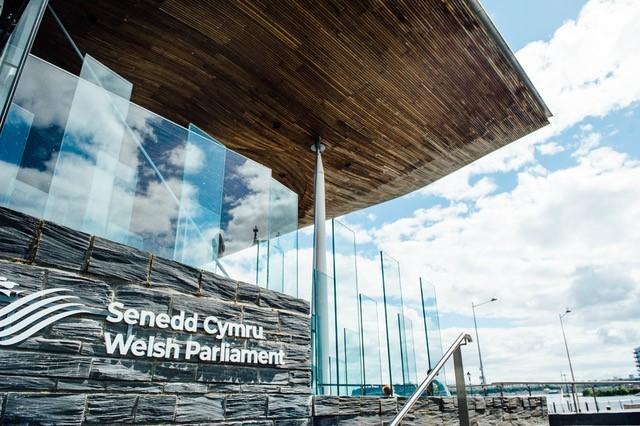THE SENEDD roundly rejected Conservative calls to ditch plans for a tourism tax.
Laura Anne Jones led a debate on the Welsh Government’s plans to roll out a visitor levy – a small fee for visitors staying overnight in tourism accommodation – from 2027.
The Tory MS warned the tax could make people think twice about holidaying in Wales, which would have a significant impact on tourism and hospitality businesses.
Ms Jones also raised concerns about the threshold for self-catering properties to qualify for business rates increasing from 70 to 182 days.
Calling for a reduction to 105 days, she warned the target has been difficult to achieve for many self-catering businesses, leaving owners at risk of 300% council tax premiums.
Ms Jones argued Visit Wales should be made independent of the Welsh Government.
The shadow culture secretary said: “The current Visit Wales system is not working and is struggling to attract people to Wales.”
Ms Jones, who represents South East Wales, told the chamber a tourism barometer published in February showed visitor numbers in decline since 2022.
Raising concerns about a significant hit to the Welsh economy, she said international visitor spending was £515m in 2019, which tumbled to £391m in 2022.
She accused the Welsh Government of “attacking” the tourism sector, saying ministers have nothing to offer besides empty words and ill-thought-out policies.
Luke Fletcher, for Plaid Cymru, stressed the importance of sustainability, raising concerns about communities becoming ghost towns in off-seasons.
The shadow economy secretary backed plans for a tourism tax because it would raise additional money to maintain attractions, streets and services.
Mr Fletcher argued a small levy would not deter visitors, raising Barcelona as an example, and he called for any money raised to be ring fenced for tourism.
He suggested a tourism levy will be rolled out elsewhere in the UK, with Manchester having brought in a £1-a-night charge which raised about £2.8m in its first year from April 2023.
The South Wales West MS urged the Welsh Government to restore rates relief for tourism businesses from 40% to 75% to take the pressure off the sector.
Peter Fox said tourism businesses in his Monmouth constituency, which are separated by mere miles from competitors in England, want a level playing field across the border.
He warned: “Businesses are facing the impending tourism tax, additional waste charges, the highest business rates in the UK, and reduced non-domestic rates support.
“All of these are causing real concern and anxiety to so many businesses that are already finding things really difficult at the moment.”
Mr Fox, who led Monmouth council for more than a decade, said local authorities will use revenue raised by a tourism tax to meet other pressures such as social care and health.
“That’s what will happen, guaranteed,” he told the Senedd.
Janet Finch-Saunders accused Labour and Plaid Cymru of “smothering” Welsh tourism with rules and regulations, which are having a detrimental impact on the industry.
The Aberconwy MS described plans for a tourism tax as a “horrible” idea dreamt up in the “ludicrous” cooperation agreement between the two political parties.
Sam Rowlands, a fellow Tory, warned a tourism tax will make Wales less competitive within the UK and send an unwelcome message to would-be visitors.
But Plaid Cymru’s Cefin Campbell said tourist levies are commonplace around the world, pointing to Croatia, Greece, the Netherlands, France, Italy, Spain and the Caribbean.
“They haven’t crippled tourism in any of these countries,” said the Mid and West Wales MS. “Instead they’ve empowered destinations to offer a better visitor experience.”
Responding to the debate on May 22, Jeremy Miles said the best way to protect the sector is to ask visitors to make a very modest contribution to the costs of tourism.
Wales’ economy secretary said the letting criteria for self-catering properties was changed to ensure owners are making a fair contribution and maximise the use of properties.
Mr Miles, who came into post in March, highlighted the Welsh Government’s tourism strategy as he outlined his vision for a sustainable tourism sector.
Accusing the Tories of running Wales down, he said: “I do deplore the way in which we heard some speakers … compare Wales unfavourably with other tourist destinations.”
MSs voted 13-33 against the Tory motion, with Plaid Cymru’s amendments also falling. The motion as amended by the Welsh Government was agreed, 24-22.



















